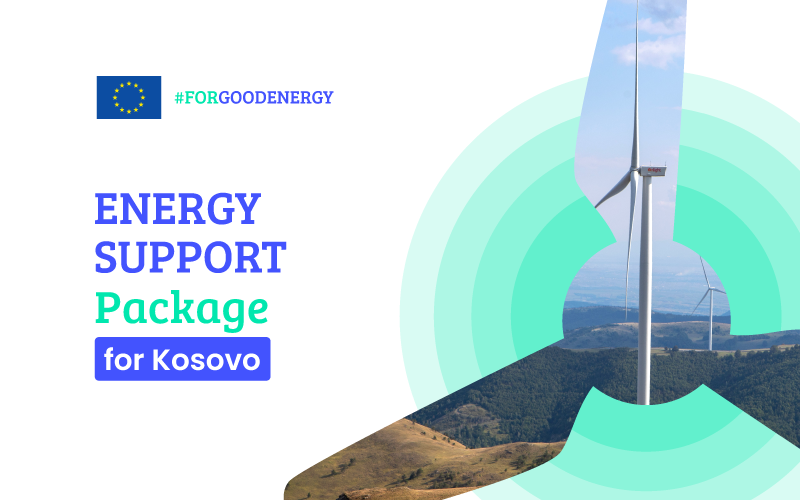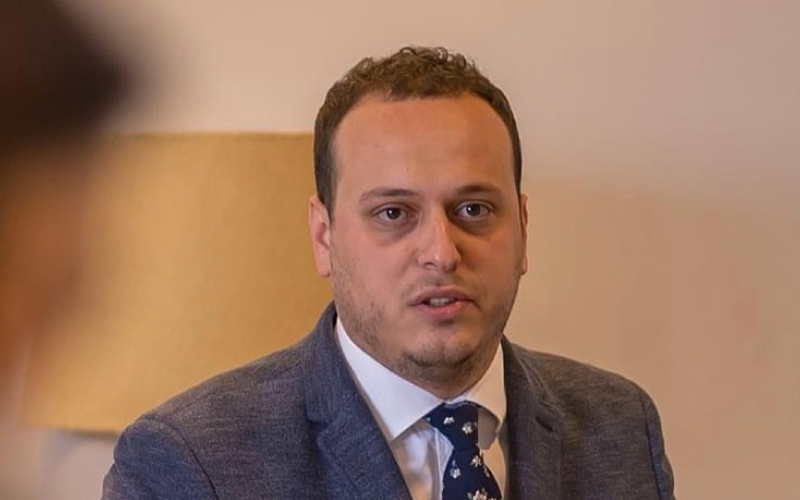March 24, 2023 | Friday

To mitigate the effects of the energy crisis and the European Commission has come up with an Energy Support Package of € 1 billion for the Western Balkans.
To understand more about the benefits of the Energy Support Package, we spoke with Flamur Junuzi, Policy Assistant at the EU in Kosovo.

EH: The EU Ambassador in Kosovo, Tomas Szunyog, and Kosovo’s First Deputy Prime Minister, Besnik Bislimi, signed a financing agreement that will enable the EU to transfer to Kosovo €75 million as direct financial assistance, as part of the EU’s Energy Support Package for the Western Balkans. How will this support help Kosovo overcome the energy crisis and the elevated energy prices?
FJ: The EU responded swiftly and mobilized € 75 million of budget support to help Kosovo in the short term to overcome the impact of the energy crisis. This is part of the immediate € 500 million support for all Western Balkans partners. The support for Kosovo was designed in close cooperation with the government of Kosovo and aims to cushion energy prices and their impact in particular on vulnerable households and businesses with a special focus on promoting energy efficiency.
The Support package is designed to address the needs and priorities of Kosovo and includes a set of measures:
– One-time direct financial support to households in need to help them pay their energy bills or subsidize the biomass fuel they need for heating their homes;
– Financial incentives to households to save energy;
– Subsidies for the renovation of i) the building’s façade/windows/doors, ii) installation of efficient heating technologies and efficient home appliances, and iii) installation of solar panels. This measure aims to lower energy consumption and energy bills.
– Support Micro, Small and Medium businesses for investing in energy-efficient technologies and solar installations.
The support package is focused on energy efficiency as a relatively inexpensive method to reduce energy demand and pollution. Furthermore, energy efficiency is considered a key pillar in enhancing energy security, contributing to economic growth, and mitigating climate change. It also brings important social benefits by lowering energy bills and improving indoor comfort levels through improved heating.
EH: What are the main stages involved in distributing this package?
FJ: The government has approved an Action Plan for the implementation of the package containing also several indicators necessary to reform the energy sector. Indicators include the adoption/implementation of strategies, laws, and regulations to ensure the sustainable development of the energy sector in Kosovo.
The support package will be disbursed in two fixed tranches. The first tranche of € 67.5 million or 90% of the total is already transferred to Kosovo’s budget. The second fixed tranche of € 7.5 million or 10% of the total will be transferred upon the progress of the government in the implementation of the measures and the energy sector policy reform.
EH: Which are the main sectors that will benefit most from this package?
FJ: The energy crisis is causing security of supply challenges, triggering extremely high-energy commodity prices, and exposing Kosovo’s fragile and unreliable power system. Accelerating the uptake of renewables and energy efficiency remains Kosovo’s best solution for our energy security and our climate ambitions. Major investments are needed in Kosovo to improve energy efficiency and scale-up investments in renewables.The package will serve this purpose and contribute to accelerating investments in energy efficiency, renewables, and sustainable technologies.
In addition to the energy package, the EU is supporting the energy transition and sustainable development of Kosovo through two big green projects: I) Solar4Kosovo – 100 MW Photovoltaic Plant in KEK worth a total of 103 million euros, and; II) Solar4Kosovo II – Solar District Heating worth a total of 76 million euros. Both projects will receive a total of 55 million euros grant from the European Commission and will contribute to the transition from coal to green sustainable energy as key to reducing both carbon dioxide emissions and air pollution.
EH: The crisis has affected the hardest economies and communities that are already in a disadvantaged and vulnerable position. How is this package foreseen to help the citizens who most need it?
FJ: One of the key objectives of the package is to assist the most vulnerable groups of society and those affected most by the energy crisis. You rightly point out that the consequences of the crisis are particularly felt by low-income households and small businesses. The package will assist around 200,000 households, including families under the social assistance scheme, pensioners, and single mothers by providing direct financial support to cover a part of their energy bills and a part of the costs for alternative heating. Another 160,000 families will benefit from energy subsidies for their energy-saving efforts.
Vulnerable groups tend to spend more on electricity as they live in poorly insulated buildings without efficient heating or solar panels on their roofs. To address this, around 22,000 families will receive support for thermal insulation and the installation of energy-efficient appliances. Furthermore, around 1,000 small businesses in Kosovo will get subsidies for the installation of energy-efficient heating systems and renewable energy sources.
EH: What are your future expectations after the implementation of this package?
FJ: The package provides substantial support for mitigating the effects of the crisis in the short term and the government needs to step up its efforts in ensuring sustainable financing for energy efficiency measures. There is a need to develop viable financing models in all sectors, as well as suitable delivery mechanisms to increase investments in energy efficiency. This support is a great start and we expect the government to continue the implementation of similar measures in the future. EU is committed to continuing the support for Kosovo in enhancing energy security through investments in energy efficiency and renewables.